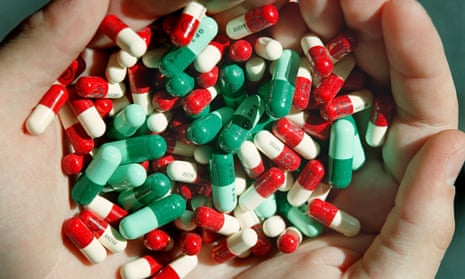Antibiotic resistance may not seem as urgent as terrorism or the NHS funding shortfall. But it is actually a threat that could kill many more people and degrade the quality of civilised life much more. Chinese scientists have discovered a gene in bacteria that conveys resistance to colistin, a drug presently used in humans when other antibiotics won’t work but also used on a large scale in pig farms. It’s bad enough that such a gene has emerged – and will obviously be favoured by natural selection. What’s worse is that it’s found in a plasmid, a ring of DNA that can be passed directly between different strains of bacteria as well as being simply inherited. Just as we can catch infections from other people, the bacteria that cause them can now transmit to each other an immunity to our countermeasure.
The new mutation is only found in one (large) class of dangerous bacteria and it only confers resistance to one particular antibiotic. But when that is the drug of last resort it’s frightening, and the overuse of antibiotics makes it almost certain that similar mutations will emerge, and spread, in other bacterial populations. The crisis is not just caused by human overprescription. The use of antibiotics in agriculture is a much greater scandal still. Animals are routinely dosed so that they can tolerate the overcrowding essential to factory farming. This is not only cruel but enormously shortsighted. The populations of food animals in south-east Asia provide a reservoir of infection for humans: we see this in the successive waves of flu that originate among the ducks and chickens there and then spread round the world. As more of the world eats more meat, farming will become more economically efficient, which is to say more cruel and more dependent on routine antibiotic dosage. This is a global problem and it will become a global health crisis, too.
Genes for antibiotic resistance that can cross species boundaries are not going to stop at national boundaries. That is why it matters so much that the Chinese government is showing interest in the problem. We in Britain, and even in Europe as a whole, should set our own farms and surgeries in order. We should prescribe fewer antibiotics and use them more carefully. This would be good in itself and set an example to the rest of the world. But even if we do everything right, as we should, we are still helpless against the consequences of other countries continuing on their suicidal course.
It might seem that widespread antibiotic resistance would not be that much of a catastrophe. But the danger is greatest where patients are most vulnerable, and antibiotics most common – in hospitals. Sober observers warn that we could be looking at the end of even routine surgeries. Childbirth might recover some of its ancient terrors. Chemotherapy for cancer would become a fatal treatment, too.
We know what needs to be done to avert this dreadful future. We must discover new drugs and use the old ones much more sparingly. The difficulty is that there are so many perverse incentives for the actors involved. Doctors in the rich world are getting better about not needlessly prescribing these drugs. In the poor world, of course, they are still not prescribed enough because they seem expensive. The drugs are not, however, terribly profitable, which skews the incentives for drug companies to develop new ones. The ideal antibiotic of last resort would be almost completely unprofitable – since it would hardly ever be used, to preserve its effectiveness. For this reason, the innovative idea that government should fund directly the research to find it has real promise. Farmers, meanwhile, are responding quite reasonably, in a competitive market, to a huge surge in demand from people who want to eat meat, which is not in itself a wrong or contemptible aim. We cannot expect them to stop using these drugs altogether but they must use them less and more wisely. This is a crisis, like climate change, that demands global solutions.
